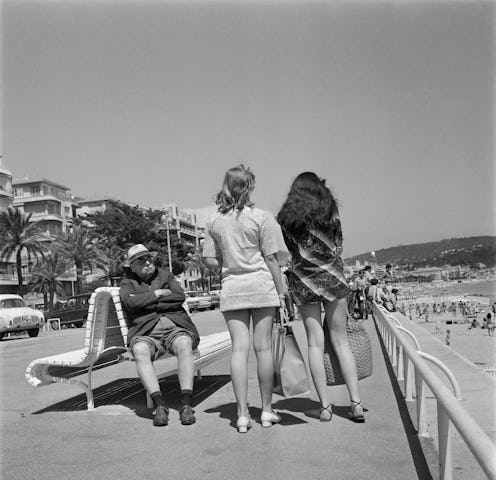Life
These Laws Are In Need Of A Serious Update
The speed at which technology has evolved in recent decades has often meant that laws don't always keep up. For instance, an Oregon judge ruled earlier this year that "upskirt" photos (pictures taken underneath someone's skirt, almost always without either their consent or knowledge) are in fact legal, which most of us agreed was absolutely awful. There's good news now, though: Oregon is now attempting to ban upskirt photos, so hopefully they'll soon be a thing of the past.
Oregon isn't the only state struggling with the legality of upskirt photos. This February, Patrick Buono, age 61, was acquitted after being caught allegedly taking surreptitious photos under the skirt of a 13-year-old girl in a Portland area Target store. And in case you missed the relevant ages, I'll repeat them: We're talking about a 61 year old man allegedly taking photos under the skirt of a 13 year old girl.
Another shopper spotted Buono, and the security camera footage confirmed he was taking pictures of the young girl. He was arrested and faced charges, but the judge in the case was forced to acquit him, explaining that Oregon's laws regarding violation of privacy only apply to nudity; since the girl was wearing underwear, Buono had technically not broken the law. The judge freely admitted that what Buono did was unquestionably awful — it just wasn't illegal.
But now Oregon lawmakers are trying to change that. The state senate has unanimously passed a bill that would make taking photos up women's dresses without consent a misdemeanor offense. As it should be.
The bill has not yet officially passed into law, but hopefully, for the sake of the women and and girls of Oregon, it will soon.
Oregon is far from the first state to have to create new legislation to confront the problem of upskirting. Texas courts, for instance, were forced to rule last year that upskirting was not against the law. In Massachusetts, one case made it all the way to Massachusetts Supreme Court after the defendant claimed it was his First Amendment Right to take upskirt photos. The court eventually ruled that under current law he unfortunately was right and hadn't broken any laws. Massachusetts passed new legislation to address the problem that same week.
Obviously, upskirting is not actually a First Amendment right. Having the right to express yourself does not give you the right to violate someone's privacy. Just like with laws against slander or obscenity, there are limits on free speech and taking photographs of someone's genital area without their consent is not something you can excuse by saying "freedom of expression!"
But it isn't really the bizarre free speech reasoning used in Massachusetts that is the major problem when it comes to upskirt photos. The main problem is simply that the law is out of date. Most voyerism and "Peeping Tom" laws were passed decades ago, long before anyone was able to anticipate a day when everyone might come equipped with a portable camera at all times, and before people had the ability to distribute photos in the way we do now. So while it's great that Orgeon is stepping up and trying to fix this problem, there are plenty of states that haven't yet. Which means that although women and girls have the right to expect protection from these types of violations, as it stands, many do not. And that is a big problem.
Image: Giphy
